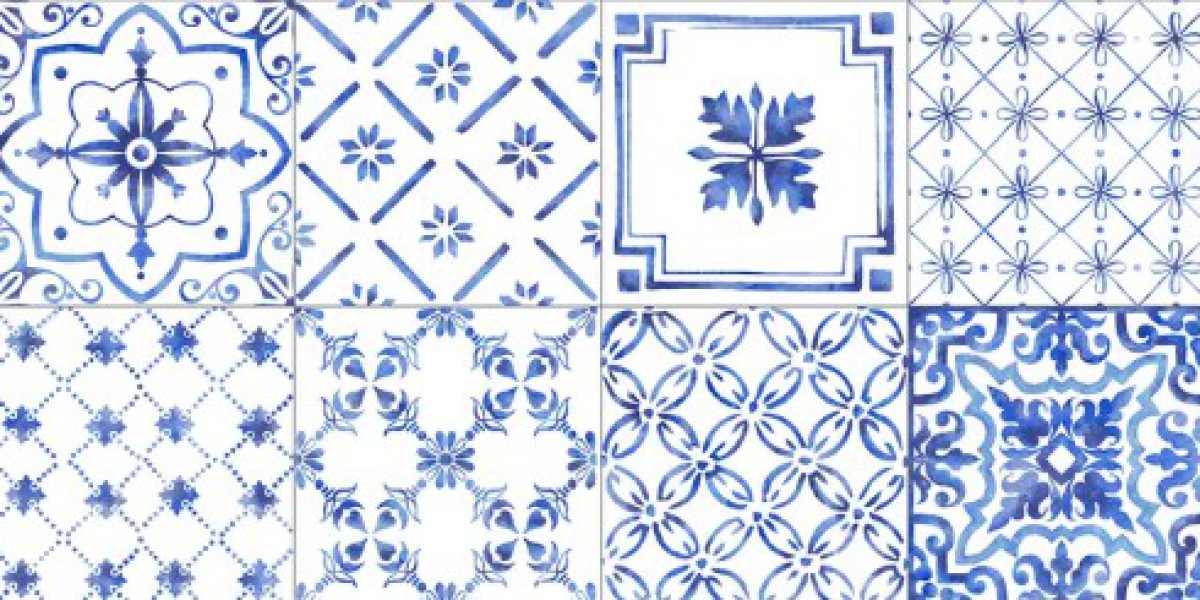Imagine walking into a room where the walls shimmer with intricate mosaic tiles, their patterns dancing in the light, colors blending and contrasting in a mesmerizing display. How does it make you feel? Calm? Energized? Inspired?
The power of mosaic tiles goes far beyond mere decoration - they have the ability to profoundly influence our mood and state of mind. Let's dive into the fascinating world where art, psychology, and interior design intersect, exploring how the patterns and colors of mosaic tiles can shape our emotional landscape.
The Ancient Art with Modern Impact
Mosaic tiles have adorned spaces for thousands of years, from ancient Roman bathhouses to Byzantine churches. Today, you can find an endless array of options at your local tile shop. But these tiny pieces of art do more than just look pretty - they speak to our subconscious in powerful ways.
Dr. Sally Augustin, an environmental psychologist, explains, "Our surroundings have a significant impact on our mental state. The patterns and colors we see can trigger specific emotional and physiological responses." This insight opens up a world of possibilities for using mosaic tiles to create spaces that not only look good but feel good too.
The Power of Patterns
When you step into a tile shop, you're greeted by a dizzying array of mosaic tile patterns. But did you know that each pattern can evoke different feelings and behaviors?
Geometric Patterns: Order in Chaos
Geometric mosaic tile patterns, with their repeating shapes and symmetry, can create a sense of order and stability. Dr. Karen Haller, a color psychology specialist, notes, "Geometric patterns can make a space feel more organized and controlled, which can reduce stress and anxiety."
Consider a bathroom adorned with hexagonal mosaic tiles. The repeating pattern can create a sense of calm and order, perfect for starting your day on the right foot or unwinding after a long day.
Natural Patterns: Bringing the Outdoors In
Mosaic tiles that mimic natural patterns like leaves, waves, or pebbles can help us feel more connected to nature. This concept, known as biophilic design, has been shown to reduce stress and improve overall well-being.
A study published in the Journal of Physiological Anthropology found that exposure to natural patterns can lower heart rate and blood pressure. Imagine a kitchen backsplash with a mosaic tile design reminiscent of flowing water - it could turn meal preparation into a soothing, almost meditative experience.
Abstract Patterns: Stimulating Creativity
Abstract mosaic tile patterns, with their non-representational forms and colors, can stimulate creativity and free thinking. Dr. Augustin suggests, "Abstract patterns can encourage more flexible thinking and problem-solving, making them ideal for spaces where you want to foster innovation."
Picture a home office feature wall with an abstract mosaic tile design. The unpredictable patterns could spark new ideas and keep the mind engaged during long work sessions.
The Psychology of Color in Mosaic Tiles
Color plays a crucial role in how mosaic tiles affect our mood. When you're browsing your local tile shop, consider not just what looks good, but how different colors might make you feel.
Blue: The Calming Hue
Blue mosaic tiles can create a sense of calm and serenity. Dr. Haller explains, "Blue is associated with the sky and sea, evoking feelings of tranquility and expansiveness." This makes blue mosaic tiles an excellent choice for bedrooms or meditation spaces.
A study published in the Journal of Business Research found that people in blue rooms reported feeling more relaxed and had lower heart rates compared to other colors.
Yellow: The Energy Booster
Yellow mosaic tiles can inject energy and optimism into a space. "Yellow is associated with sunlight and warmth," says Dr. Augustin. "It can stimulate mental activity and generate feelings of happiness."
Consider using yellow mosaic tiles in a home gym or a children's playroom to create a vibrant, energizing atmosphere.
Green: The Natural Balance
Green mosaic tiles can create a sense of balance and harmony. Associated with nature, green has been shown to reduce stress and promote feelings of rejuvenation.
A study in the Journal of Environmental Psychology found that participants in green rooms reported feeling more relaxed and showed lower levels of the stress hormone cortisol.
Red: The Passion Igniter
Red mosaic tiles can evoke feelings of excitement and passion. However, use them judiciously. Dr. Haller warns, "While red can be stimulating in small doses, too much can be overwhelming and increase stress levels."
Red mosaic tiles might work well as an accent in a dining room, potentially stimulating appetite and conversation.
Putting It All Together: Creating Mood with Mosaic Tiles
Understanding the psychological effects of patterns and colors is just the beginning. The real magic happens when you combine these elements to create a specific mood or atmosphere.
Imagine a spa bathroom where cool blue mosaic tiles in a wave pattern cover the walls. The color promotes relaxation, while the natural pattern connects you to the calming essence of water. Add some small yellow mosaic tile accents for energy, and you've created a space that both relaxes and rejuvenates.
Or picture a home office with a feature wall of geometric mosaic tiles in shades of green. The pattern provides a sense of order to boost productivity, while the color reduces stress and promotes balance - perfect for maintaining focus during busy workdays.
The Personal Touch: Individual Differences
While these psychological principles provide a general guide, it's important to remember that personal experiences and cultural backgrounds can influence how we respond to different patterns and colors.
Dr. Augustin advises, "When choosing mosaic tiles, consider not just the general psychological effects, but also your personal associations and preferences. A pattern or color that energizes one person might overwhelm another."
This is where the experience of visiting a tile shop becomes invaluable. Seeing and touching the mosaic tiles in person can help you gauge your emotional response to different options.
The Future of Mood-Enhancing Mosaic Tiles
As our understanding of environmental psychology grows, so too does the potential for using mosaic tiles to enhance our well-being. Some tile shops are already offering "mood collections" - curated sets of mosaic tiles designed to evoke specific emotional states.
Researchers are also exploring how changing light can interact with mosaic tiles to create dynamic mood-enhancing environments. Imagine mosaic tiles that shift in appearance throughout the day, matching our natural circadian rhythms to promote better sleep and overall health.
Conclusion: Small Tiles, Big Impact
From the moment we step into a tile shop to the daily experience of living with our chosen mosaic tiles, these small pieces of art have the power to significantly influence our mood and well-being. By understanding the psychological effects of different patterns and colors, we can create spaces that not only look beautiful but also support our emotional and mental health.
Whether you're looking to create a calming oasis in your bathroom, an energizing kitchen, or a balanced and productive home office, mosaic tiles offer a world of possibilities. So the next time you're browsing mosaic tiles at your local tile shop, remember - you're not just choosing a design, you're crafting an experience.
With each tiny tile, you're building a space that can uplift, calm, energize, or inspire. In the grand mosaic of life, these small choices can make a big difference in how we feel every day.


